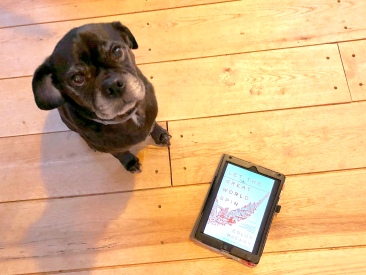 Let the Great World Spin
Let the Great World Spin
Colum McCann
For the first few chapters, I really disliked Let the Great World Spin, and I considered abandoning it. I’m glad, though, I stuck with it. Loosely connected by a tightroper walking between the World Trade Tower building (based on Philippe Petit), the book studies a wide cast of characters. John Corrigan, an Irish priest living in the projects in the Bronx, administers to the prostitutes working nearby and suffers a crisis of faith. His brother, Ciaran, has come to New York after he was mildly injured in an IRA bombing in Dublin and is so disturbed by his brother’s behavior that he thinks he is on heroin. Though Ciaran recognizes the danger inherent in the situation, including John’s insistence on leaving his apartment door unlocked so the prostitutes have a place to go between tricks and his frequent beatings by pimps, he can’t bear to abandon his brother.
Two of the prostitutes are mother and daughter. Tillie, the mother, left Jazzlyn with her mother in Cleveland when she came to New York to make money, but she couldn’t stand to be away from her daughter. In her warped logic, keeping her on the streets with her was a way of keeping her safe. Even though still a teenager, Jazzlyn has two children of her own.
Lara and Blaine, young artists who have embraced the style and ethos of the 1920s, spend more time doing drugs than creating, and their habits lead them to destructive behavior. Claire, Gloria, and three other women who have all lost their sons in Vietnam have formed a support group, but their internal divisions undermine their mission.
Other characters–a photographer, a group of hackers from California–drop into the story and just as quickly leave without much of a trace.
McCann is able to imbue all these characters with distinct, and usually mournful voices, and once their stories come together in natural and surprising ways, the narrative picks up. That’s when I decided not to put this in the “did not finish” pile.
More than just the tightrope act, grief and mourning unite the characters, and most learn how to come to some kind of peace. McCann frequently returns to the idea of memory and how it is contained within moments: “He knows my story. It is contained within this moment.” The tightrope walk becomes one of those touchstone moments that captures memory, in this case, a collective memory, all the more poignant because we know the fate of the World Trade Center.
The book isn’t difficult, but it is substantial and weighs heavily. I’m very glad that I didn’t put it aside, and I encourage other readers to push through the first few chapters for a very rewarding read.